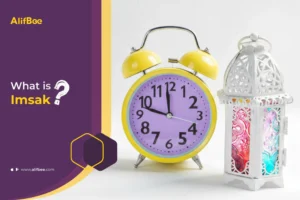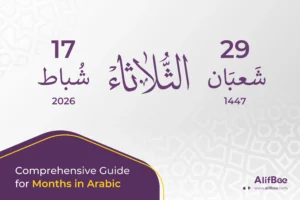Introduction
Mastering Arabic verbs is essential for building a strong foundation in the language. Verbs form the backbone of communication, allowing you to express actions, describe events, and convey thoughts. Whether you are a beginner or advancing in your Arabic studies, understanding how to conjugate Arabic verbs and use them in sentences is key to fluency.
This blog explores 100 must-know Arabic verbs, provides examples of their usage, and explains how to conjugate ten of the most common verbs in the present tense. If you’re looking for an easy way to learn common Arabic verbs and their meanings, you’re in the right place!
Arabic verbs are rich in structure and meaning. Unlike English, they are shaped by grammatical aspects that influence their use and conjugation. Here’s a breakdown with examples to illustrate:
1. Verb Cases
Verb cases in Arabic indicate the grammatical role of the verb in a sentence. The three main cases are indicative (المرفوع), subjunctive (المنصوب), and jussive (المجزوم). These cases are essential in understanding how verbs function.
- Indicative Case (المرفوع):
- يَذْهَبُ الطَّالِبُ إِلَى الْمَدْرَسَةِ (The student goes to school).
- The verb يَذْهَبُ (goes) is in the indicative case because it is in a neutral, declarative statement.
- Subjunctive Case (المنصوب):
- أُرِيدُ أَنْ يَذْهَبَ الطَّالِبُ إِلَى الْمَدْرَسَةِ (I want the student to go to school).
- The verb يَذْهَبَ (to go) is in the subjunctive case because it follows the particle أَنْ (that).
- Jussive Case (المجزوم):
- لَمْ يَذْهَبْ الطَّالِبُ إِلَى الْمَدْرَسَةِ (The student did not go to school).
The verb يَذْهَبْ (did not go) is in the jussive case because it follows the negative particle لَمْ.
2. Strong vs. Weak Verbs
- Strong Verbs (الفعل الصحيح):
Strong verbs have root letters that remain stable during conjugation.- Example: كَتَبَ (to write).
- Present tense: يَكْتُبُ (he writes).
- Past tense: كَتَبَ (he wrote).
- Imperative: اكْتُبْ (write!).
- Example: كَتَبَ (to write).
- Weak Verbs (الفعل المعتل):
Weak verbs contain a weak letter (و, ا, or ي) that may drop or change in some forms.- Example: قَالَ (to say).
- Present tense: يَقُولُ (he says).
- Past tense: قَالَ (he said).
- Imperative: قُلْ (say!).
- Example: قَالَ (to say).
3. Imperative Verbs
Imperative verbs (الأمر) are used for commands or requests.
- Example:
- اِفْتَحْ الْبَابَ (Open the door).
- اكْتُبْ دَرْسَكَ (Write your lesson).
Imperative verbs are often derived from the second-person conjugation of the verb, with slight modifications depending on the verb type.
4. Verb Forms
Arabic verbs have ten primary forms (الأوزان) that alter the root meaning.
- Example: The root كَتَبَ (to write) has several derived forms:
- Form I: كَتَبَ (he wrote).
- Form II: كَتَّبَ (he made someone write).
- Form III: كَاتَبَ (he corresponded).
- Form IV: أَكْتَبَ (he dictated).
- These forms can express causation, reciprocity, or intensity, depending on the pattern.
100 Basic Arabic Verbs
English
Transcription
Arabic Word
to taste
Dhāqa
ذَاقَ
to see
Raʼá
رَأى
to go
Dhahaba
ذَهَب
to collect
Jamaʻa
جَمَع
to return
ʻĀda
عاد
to run
Rakaḍa
رَكَض
to ignore
Tajāhala
تَجاهَل
to walk
Mashaa
مَشى
to talk
Taḥddatha
تَحدَّث
to eat
Akala
أَكَل
to drink
Shariba
شَرِب
to wear
Labisa
لَبِس
to sleep
Nāmaa
نام
to play
Laʻiba
لَعِب
to study
Darasa
دَرَس
to announce
Aʻlana
أَعلَن
to write
Kataba
كَتَب
to read
Qaraʼa
قَرَأ
to laugh
Ḍaḥika
ضَحِك
to love
ahabba
أَحَبّ
to hate
Kariha
كَرِه
to want
Arāda
أَراد
to say
Qāla
قال
to organize
Naẓẓama
نَظَّم
to plan
Khaṭṭaṭa
خَطَّط
to book
Ḥajaza
حَجَز
to observe
Rāqaba
راقَب
to analyze
Ḥallala
حَلَّل
to publish
Nashara
نَشَر
to verify
Daqqaqa
دَقّق
to edit
Ḥarrara
حَرَّر
to correspond
Rāsala
راسَل
to chat
Dardasha
دَردَش
to ask
Saʼala
سَأَل
to answer
Ajāba
أَجاب
to understand
Fahima
فَهِم
to buy
Ishtaraa
اِشتَرى
to sell
Bāʻa
باع
to hear
Samiʻa
سَمِع
to live
ʻĀsha
عاش
to die
Māta
مات
to cook
Ṭabakha
طَبَخ
to break
Kasara
كَسَر
to fix
Aṣlaḥa
أَصلَح
to travel
Sāfara
سافَر
to forget
Nasīa
نَسِي
to remember
Tadhakkara
تَذَكّر
to search
Baḥatha
بَحَث
to draw
Rasama
رَسَم
to cry
Baká
بَكى
to call
Nādá
نادَى
to smile
Ibtasama
اِبتَسَم
to help
Sāʻada
ساعَد
to cut
Qaṭaʻa
قَطَع
to watch
Shāhada
شاهَد
to pay
Dafaʻa
دَفَع
to carry
Ḥamala
حَمَل
to lose
Faqada
فَقَد
to find
Wajada
وَجَد
to add
Aḍāfa
أَضاف
to put
Waḍaʻa
وَضَع
to lead
Qāda
قاد
to leave
Kharaja
خَرَج
to go down
Nazala
نَزَل
to go up
Ṣaʻada
صَعَد
to presume
Ẓanna
ظَنَّ
to need
Iḥtāja
اِحتاج
to think
Iʻtaqada
اِعتَقَد
to try
Ḥāwala
حاوَل
to start
Badaʼa
بَدَأ
to continue
Akmala
أَكمَل
to stop
Tawaqqafa
تَوَقّف
to sit
Jalasa
جَلَس
to choose
Ikhtāra
اِختَار
to participate
Shāraka
شارَك
to wish
Tamanná
تَمَنّى
to cooperate
Taʻāwana
تَعاوَن
to build
Baná
بَنَى
to feel
Shaʻara
شَعَر
to learn
Taʻallama
تَعَلّم
to support
Sānada
سانَد
to encourage
Shajjaʻa
شَجّع
to motivate
Ḥaffaza
حَفّز
to inspire
Alhama
أَلهَم
to clean
Naẓẓafa
نَظَّف
to discover
Istakshafa
اِستَكشَف
to attend
Ḥaḍara
حَضَر
to volunteer
Taṭawwaʻ
تَطَوَّع
to donate
Tabarraʻa
تَبَرَّع
to invest
Istathmara
اِستَثمَر
to store
Khazzana
خَزَّن
to earn
Kasiba
كَسِب
to spend
Anfaqa
أَنفَق
to borrow
Istaʻāra
اِستَعار
to lend
Aʻāra
أَعار
to give
Aʻṭáa
أَعطَى
to receive
Istalama
اِستَلَم
to rent
Istaʼjara
اِستَأجَر
to negotiate
Tafāwaḍa
تَفاوَض
to call
Ittaṣala
اِتَّصَل
Do you want to practice Arabic verbs and retain what you have learned?
Claim your 14-Day Trial of AlifBee!
Verb Conjugations in the Present Tense
Here are three common Arabic verbs from the list, conjugated in the present tense. These examples illustrate how to use basic verbs in Arabic for everyday conversation:
to write
Transcription
كتب
I write
Anā aktubu
أَنا أَكتُب
You write
Anta taktubu
أَنتَ تَكتُب
She writes
Hiya taktubu
هِيَ تَكتُب
He writes
Huwa yaktubu
هُوَ يَكتُب
We write
Naḥnu naktubu
نَحنُ نَكتُب
They write
Hum yaktubwn
هُم يَكتُبون
to read
Transcription
قرأ
I read
Anā aqraʼu
أَنا أَقرَأ
You read
Anta taqraʼu
أَنتَ تَقرَأ
She reads
Hiya taqraʼu
هِيَ تَقرَأ
He reads
Huwa yaqraʼu
هُوَ يَقرَأ
We read
Naḥnu naqraʼu
نَحنُ نَقرَأ
They read
Hum yaqraʼwn
هُم يَقرَؤون
to go
Transcription
ذهب
I go
Anā adhhabu
أَنا أَذهَب
You go
Anta tadhhabu
أَنتَ تَذهَب
She goes
Hiya tadhhabu
هِيَ تَذهَب
He goes
Huwa yadhhabu
هُوَ يَذهَب
We go
Naḥnu nadhhabu
نَحنُ نَذهَب
They go
Hum yadhhabwn
هُم يَذهَبون
Tips for Learning Arabic Verbs Quickly
- Start with Common Verbs: Focus on frequently used Arabic verbs to build your vocabulary.
- Learn Verb Conjugations: Practice conjugating verbs in different tenses to improve fluency.
- Use Example Sentences: Write and read sentences to see how verbs function in context.
- Understand Verb Forms: Familiarize yourself with the ten verb forms to grasp the root system.
- Practice Daily: Dedicate time each day to learning and revising verbs.
Final word
Arabic verbs open doors to meaningful communication. So make sure to understand their forms, meanings, and conjugations, so you can enhance your ability to express yourself.
Keep this list close and try to use these verbs in your every day conversations.
For more help with learning Arabic vocabulary, read How to Increase Arabic Vocabulary in 7 Steps and Top 100 Common Words in Arabic.
Want to master Arabic verbs through real examples and exercises? Start your free 14-day journey with AlifBee.








